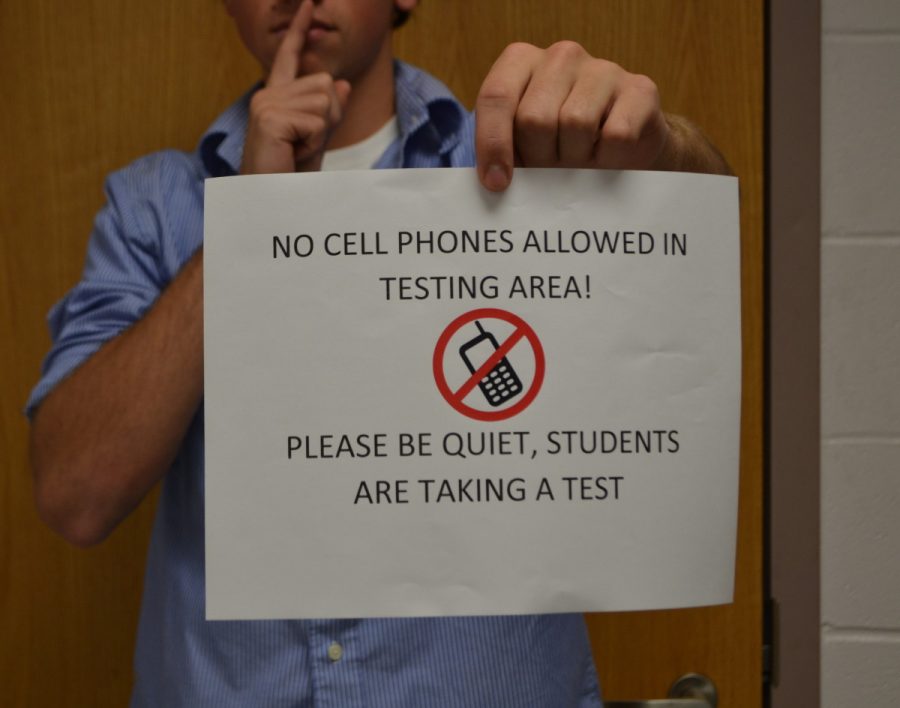Roundtable Discussion With Superintendent and Students
November 11, 2013

Reporters from all over MCPS met with Superintendent Dr. Joshua Starr Oct. 21 to discuss various community and school issues such as testing, armed officers at schools and technology in schools.
Dr. Starr has a reputation for offering ideas that would minimize tests within the school system and use more modern ways to judge student ability and teacher quality. Though he is not opposed to all testing, he believes that test scores should not be the only qualifiers for success in the education system. Nonetheless, removing tests is nearly impossible, according to Dr. Starr.
“Tests are a part of life at this point,” Dr. Starr said.
Colleges use them to assess applicants, and states need to collect data on students’ educational progress and compare it to that of students in other states.
The importance of tests and scores was not the only issue discussed though: Dr. Starr also focused on explaining that test performance does not always correlate with student happiness.
“In some schools where scores were high, people were unhappy,” Dr. Starr said.
Test scores in certain schools were remarkable but surveys showed that not all of those students were content in their environments. Both of these factors are important in effective schools.
Another prominent issue was having armed police officers on school grounds throughout the day. Some students are more comfortable than others with having officers and especially weapons near or in the building. Budget cuts from a few years ago depleted the number of officers in MCPS schools, but the number has since risen.
Students have shared stories of having property stolen from them around or near the school and most would agree that an officer’s watchful presence eases their worries about theft and safety.
Technology was also a hot topic at the discussion. The county recently finished implementation of Promethean boards in all MCPS schools. Though Dr. Starr is aware that some MCPS students would like to see even bigger advances in technology in schools’such as using iPads or e-books instead of textbooks, paper and pencils’such dramatic changes pose equity and necessity issues that have to be addressed first.
Students and school officials alike are concerned with the technology that is already in school and with making that technology better, as well as making the access to that already present technology easier, before any major updates occur.
“I think we should have more computers because we have bigger class sizes a�� [but] the new computers are better,” senior Stephanie Martin said. For many, useful technology beats out the absolute newest innovation.
Not all schools in MCPS have equal access to resources, so the county must plan its budgets and implementations accordingly. Some schools must receive more from the district in order to reach the level other schools are already at, and that equilibrium has to be reached before other action is taken.
“What do you do for kids whose parents aren’t buying them a laptop or an iPad?” Dr. Starr said.
Teachers in the classroom cannot start using the latest technology in their lesson plans unless that technology reaches widespread accessibility, a point this district has not yet reached.
Despite fewer opportunities presented to students in some schools as compared to others, all students in the system must be prepared for college in the same amount of time, and Dr. Starr takes accountability for the results of their education. According to Dr. Starr, changes cannot be made without “thoughtful teachers” at the forefront.




